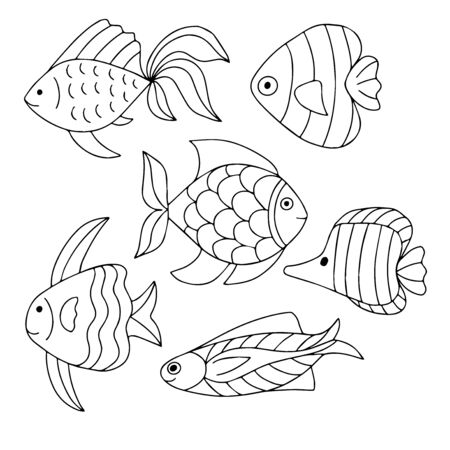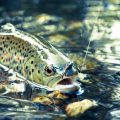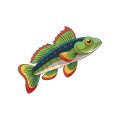1. Understanding the British Winter Waters
As winter settles across the UK, our cherished lakes, rivers, and canals take on a whole new character. The drop in temperature doesn’t just mean bundling up in more layers; it also transforms the very environment beneath the surface. Water temperatures fall, daylight hours shrink, and aquatic vegetation dies back, resulting in clearer waters but also more challenging conditions for both anglers and fish.
The Shifting Landscape of British Waters
In winter, stillwaters like lakes and reservoirs tend to become much clearer as algae growth slows down. Rivers flow lower and slower due to reduced rainfall and meltwater. Canals, which are already calm and slow-moving, can become almost glass-like on frosty mornings. These changes don’t just alter the scenery—they have a big impact on where fish choose to spend their time and how active they are.
How Winter Conditions Affect Fish Behaviour
| Water Type | Winter Change | Fish Response |
|---|---|---|
| Lakes & Reservoirs | Colder, clearer water; less weed cover | Fish move deeper for warmth; more cautious |
| Rivers | Slower flow; stable levels | Fish seek sheltered spots behind features like overhanging trees or bends |
| Canals | Minimal flow; clear visibility | Fish shoal tightly together, often near structures or depth changes |
A Family Tradition: Embracing the Chill Together
For many of us, winter fishing is about more than just catching—it’s about sharing early mornings by the water with loved ones and passing down stories between generations. Understanding these seasonal shifts helps us make those family outings more rewarding and memorable. By tuning into how winter affects our favourite local spots, we can plan our sessions for greater success—and enjoy some quality time together in the crisp British air.
Essential Winter Fishing Tackle and Clothing
When the British winter sets in, a successful day by the water depends not only on skill but also on having the right kit. Frosty mornings and chilly winds can quickly sap your energy, so being prepared with essential tackle and cosy clothing is crucial for both comfort and effectiveness.
Key Winter Fishing Tackle
Choosing the proper rods and reels makes all the difference during those colder months. A shorter rod, around 10-11ft, offers better control when fish are less active. Pair this with a responsive reel that handles lighter lines—perfect for subtle bites common in winter. Don’t forget to check your line regularly for damage; cold weather can make it brittle.
| Tackle Item | Winter Recommendation |
|---|---|
| Rod | 10-11ft, medium action |
| Reel | Compact, smooth drag system |
| Mainline | 4-6lb fluorocarbon or mono |
| Bait | Maggots, bread, sweetcorn, worms |
Bait Choices for Cold Weather Success
Fish tend to feed less aggressively in winter, so opt for smaller, more natural baits. Maggots and worms work wonders across UK waters, while bread punch and sweetcorn are firm favourites for roach and carp. Keep baiting light—too much can overwhelm sluggish fish.
Staying Warm: Clothing Essentials
There’s nothing quite like sipping tea from a flask as you cast out on a crisp winter morning—but only if you’re warm enough! Layering is the British angler’s best friend. Start with thermal base layers, followed by a quality fleece and an insulated waterproof jacket. Don’t forget thick socks, wellies or sturdy boots, and fingerless gloves so you can still tie knots with ease.
| Clothing Item | Purpose |
|---|---|
| Thermal base layer | Keeps core body warmth in |
| Fleece top/mid-layer | Adds insulation without bulk |
| Waterproof jacket & trousers | Protects from wind & rain showers |
| Woolly hat & gloves (fingerless) | Keeps extremities warm while allowing dexterity |
| Thick socks & boots/wellies | Prevents cold feet during long sessions by the bank |
A Little Home Comforts Go Far!
Packing a flask of hot tea or soup brings that extra bit of warmth from home—don’t underestimate its morale-boosting power! A compact camping chair and a windbreak can turn a bleak session into an enjoyable family outing. By investing in the right gear and dressing appropriately, you’ll be ready to embrace the unique charm of British winter fishing with confidence and comfort.

3. Specialist Techniques for Cold Water Success
When winter descends upon the UK, many anglers know that adapting their approach is key to landing those elusive cold-weather catches. British fishing has a long tradition of specialist techniques tailored for chilly waters, and mastering these can truly elevate your winter angling experience. Below, we’ll explore some classic methods—ledgering, float fishing, and lure tactics—that have stood the test of time on frosty banksides up and down the country.
Ledgering: Stability in Still Waters
Ledgering is a go-to method when temperatures drop, especially on rivers like the Thames or stillwaters dotted across the countryside. By keeping your bait anchored on the bottom, you present it right where sluggish winter fish are most likely to feed. The use of bite alarms or quiver tips means you won’t miss those subtle nibbles that are typical in cold conditions.
Float Fishing: Sensitivity Meets Tradition
For many British families, float fishing brings back fond memories of chilly mornings spent by local ponds or canals. In winter, using a fine-tuned waggler or stick float allows for delicate presentations that won’t spook wary fish. Light lines and small hooks are the norm, targeting species like roach, perch, and chub as they gently sip at maggots or bread punch.
Lure Tactics: Tempting Predators
Winter predators such as pike and perch remain active even in icy waters. Lure fishing, particularly with jigs or soft plastics, lets you cover more ground and trigger aggressive strikes from these hunters. Slow retrieves and natural colours tend to work best during colder months—perfect for exploring reservoirs or urban canals alike.
Quick Reference Table: Winter Techniques at a Glance
| Technique | Best Target Fish | Key Equipment | Top Tip |
|---|---|---|---|
| Ledgering | Bream, Carp, Barbel | Bite alarm, heavy feeder rod | Use spicy groundbait for extra attraction |
| Float Fishing | Roach, Perch, Chub | Waggler/stick float, fine line | Fish close to features like reeds or overhangs |
| Lure Tactics | Pike, Perch | Jigs/soft plastics, medium spinning rod | Try a slow retrieve with frequent pauses |
A Family Note:
No matter which method you choose, winter fishing is about patience and enjoying time outdoors together. Share a flask of tea, swap stories between bites, and remember—the real catch is often the memories made along the bank.
4. Bait Selection and Preparation for Winter
When it comes to winter fishing in Britain, choosing the right bait is absolutely crucial—especially as fish become less active and more selective in colder temperatures. It’s not just about what you use, but how you prepare it that can make all the difference on those crisp mornings by the water’s edge.
Maggots: The All-Round Favourite
Maggots remain a time-tested choice for British anglers during winter. Their wriggling movement is irresistible to sluggish roach, perch, and chub. Opt for red or bronze maggots, which stand out better in murky water. If you fancy giving them an extra boost, try flavouring with a touch of aniseed or turmeric—just a sprinkle works wonders!
Bread: A Classic with Versatility
Bread is another staple, especially effective when targeting species like bream and carp. Whether you’re pinching on a soft flake or using liquidised bread to create a tempting cloud, this humble kitchen ingredient often proves its worth when the mercury drops. Keep your bread fresh by storing it in a sealed bag, and only prepare what you need for the session to avoid waste.
Groundbait Mixes: Drawing Fish In
Groundbait isn’t just for summer. In winter, use lighter mixes with minimal feed to avoid overfeeding lethargic fish. Adding crushed hempseed or a dash of sweetcorn can provide that extra attraction needed in chilly waters. Below is a handy table outlining popular winter baits and their best uses:
| Bait Type | Best For | Preparation Tips |
|---|---|---|
| Maggots | Roach, Perch, Chub | Add flavouring; store cool; use sparingly |
| Bread (flake/liquidised) | Bream, Carp | Keep fresh; prepare just before use |
| Groundbait Mixes | Mixed coarse fish | Go light on feed; add attractants like hempseed |
| Sweetcorn | Tench, Carp | Add to groundbait or hook directly; choose bright kernels for visibility |
| Worms (small pieces) | Perch, Roach | Chop finely; mix into groundbait for added scent |
Keeping It Simple and Subtle
Remember, less is often more during the British winter. Go for subtle presentations and avoid heavy feeding—fish aren’t looking for a feast! Prepare your bait with care at home, pack it neatly in reusable tubs or bags, and you’ll be ready to tempt even the wariest cold-water specimens. With these thoughtful bait choices and preparations, you’ll boost your chances of success while enjoying those peaceful hours beside your favourite local venue.
5. Prime Locations and Timings
Finding the ideal swim during the British winter can make all the difference between a blank day and a memorable session. With the chill settling in, fish become less active and tend to shoal up in specific areas for warmth and shelter. Knowing where and when to cast your line is crucial.
Choosing the Perfect Swim
Start by scouting sheltered spots out of the prevailing wind—think reed beds, overhanging trees, or deeper margins near features such as sunken branches or gravel bars. In rivers, look for slower-moving bends, eddies, or near bridges where fish like chub and perch often hold up in winter. Stillwaters often see carp and bream huddling in the deepest pockets, while predator species might patrol marginal shelves at dawn and dusk.
Reading Water Features
| Feature | Why It’s Productive in Winter |
|---|---|
| Deep Holes | Offer stable temperatures; ideal for shoaling fish |
| Overhanging Trees | Provide cover from predators and harsh weather |
| Mildly Flowing Eddies (rivers) | Reduced current allows fish to conserve energy |
| Margins Near Reed Beds | Shelter and occasional food sources drift here |
Timing Your Trips
The bite window is notably shorter during winter months. Typically, the most productive periods are late morning through early afternoon when water temperatures rise slightly thanks to any available sunlight. Avoid first light starts—give the day a chance to warm up, especially after a hard overnight frost. If you’re targeting predators like pike or perch, dusk can still produce results as they hunt before nightfall.
Top Timing Tips for Winter Fishing
- Aim for midday sessions: 10am–2pm is often prime time
- Avoid fishing immediately after heavy frosts or rapid temperature drops
- If possible, plan outings around mild spells between cold snaps
By carefully choosing your location and timing your trips to coincide with these limited windows of activity, you’ll give yourself the best shot at cold-weather success on British waters.
6. Staying Safe and Cosy by the Bank
Fishing during a British winter can be truly magical, but it’s important to prioritise your comfort and safety to make every session enjoyable. Let’s explore some practical tips to keep you warm, dry, and cheerful while waiting for that elusive bite.
The Essentials for Winter Comfort
| Item | Why You Need It |
|---|---|
| Thermal Clothing | Layering up keeps your core warm and allows flexibility if the weather changes. |
| Waterproof Outerwear | Staying dry is crucial—invest in a reliable waterproof jacket and trousers. |
| Insulated Boots & Thick Socks | Cold feet are no fun; choose wellies or boots with good grip and insulation. |
| Shelter (Bivvy or Umbrella) | A sturdy shelter protects from wind, rain, and even snow showers. |
Warm Drinks: A British Favourite
Nobody appreciates a steaming cup of tea or coffee more than a winter angler on the bank. Pack a large flask before you leave home, and consider bringing extra sachets of hot chocolate or instant soup for variety. Sharing a cuppa with a fishing mate is often as memorable as catching a fish!
Top Tip:
If you’re planning a long session, bring an insulated mug—it keeps drinks hotter for longer, so you can enjoy sips throughout the day.
Shelter Strategies
- Pick a spot that offers some natural windbreak, such as behind hedges or low trees.
- If using a bivvy, set it up securely with pegs—British winds can be unforgiving!
- A groundsheet helps keep your kit off damp grass and adds another layer between you and the cold earth.
Staying Dry: Little Things Make a Big Difference
- Keep spare gloves and hats in a dry bag—they’re lifesavers if yours get wet.
- A small towel is handy for drying hands after handling fish or bait.
- Use waterproof seat boxes or mats for extra comfort and protection from soggy ground.
Remember:
Your safety comes first. Always let someone know where youre fishing and what time you expect to return. Carry a fully charged mobile phone in a waterproof pouch—just in case. With these cosy comforts sorted, you’ll find winter fishing not just bearable, but truly special—a chance to savour the stillness of nature, wrapped up warm with your favourite brew in hand.
7. Making it a Family Affair
Winter fishing in Britain isn’t just about braving the cold for a good catch—it’s also a brilliant opportunity to gather loved ones and create cherished memories by the water’s edge. Embracing this wholesome pastime together can transform a chilly day into an adventure filled with laughter, learning, and plenty of British tea. Here are some inviting ways to make winter fishing an activity everyone in the family or friend group can enjoy:
Planning Ahead for Comfort and Fun
Before heading out, involve everyone in the planning. Choose accessible fishing spots that offer shelter, toilets, or even a cosy café nearby—many local lakes or rivers in the UK have facilities perfect for families. Pack warm clothes, waterproofs, and extra blankets, and don’t forget a flask of hot chocolate or a thermos of classic English tea to keep spirits high.
Easy Roles for Every Age
Not everyone has to be an expert angler! Assigning simple roles ensures everyone feels involved, from baiting hooks to spotting wildlife. Even little ones can help feed ducks or keep score of who lands the most fish—or the biggest!
Family Winter Fishing Roles
| Role | Who Can Join In? |
|---|---|
| Bait Prepper | Children/Teens |
| Fish Spotter | Younger Kids |
| Cameraman | Teens/Adults |
| Hot Drink Provider | Everyone! |
Add Some Friendly Competition
A bit of gentle rivalry always adds excitement. Set up mini competitions—like “first fish caught,” “funniest catch face,” or “most creative bait”—with small prizes such as homemade biscuits or the honour of choosing the next fishing spot.
Share Stories and Traditions
While waiting for a bite, swap stories of past catches or let older family members share their favourite British fishing tales. Singing classic songs or playing I-spy along the riverbank brings warmth and tradition to your outing.
A Wholesome Day Out—Rain or Shine
No matter what the weather throws at you, winter fishing can become a beloved British ritual when shared with family and friends. Wrap up well, bring hearty snacks like Cornish pasties or sausage rolls, and enjoy the simple pleasures of togetherness outdoors. These moments by the water are often the ones you’ll treasure for years to come.


